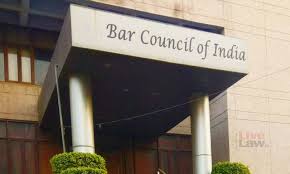NEW DELHI: As the Bar Council of India (BCI) decided to scrap the one-year LLM course, introduced in 2013, Panjab University (PU) is now looking towards some drastic changes.
As per notification issued by BCI Legal Education (Post Graduate, Doctoral, Executive, Vocational, Clinical and other Continuing Education) Rules, 2020, the postgraduate course Master’s degree (LLM) has to be of two years (completed in four semesters).
The course (LLM) is offered at PU’s Department of Law and University Institute of Legal Studies and Regional Centre, Ludhiana.
In what could be a major setback, PU was planning to introduce the same course through correspondence mode, starting this year. However, after this notification, PU has to abide by the new rules which would further lead to delay in developments.
As per the notification, “A Master Degree Program in Law of one-year duration introduced in India in 2013(as per notification) by the University Grants Commission shall remain operative and valid until the Academic Session in which these Regulations are notified and implemented but not thereafter at any University throughout the country.”
The notification also made a compulsory to have a three-year or five-year LLB will for taking admission to LLM course. “As per the Rules, a Master’s degree in any specialized branch of Law offered in the Open System to any graduate, such as Business Law or Human Right, or International Trade Law without having LLB/BA LLB as the requisite entry-level qualification shall not be designated as LLM.
PU used to conduct entrance test for filling seats under LLM courses, which helped the institution generate revenue. Even the number of seats was limited, subjected to increase or decrease as per requirement after approval of PU senate and syndicate. However, after the introduction of these rules, a common entrance test will be conducted to fill-in limited seats.
“Admission to LLM will be through Post Graduate Common Entrance Test in Law (PGCETL) to be conducted by the BCI. Until the PGCETL is introduced the present system followed by respective Universities shall be followed. After introduction, it (PGCETL) shall be mandatory to admit the students from the merit list of the Test,” stated the notification. It further added, “LLM degree obtained from a Foreign University, which has been prosecuted without an equivalent LLB degree shall not be equivalent to Indian LLM degree. One-year LLM obtained from any foreign University will not be considered equivalent to Indian LLM degree.
However, one-year LLM degree obtained after an equivalent LLB degree from any highly accredited foreign university may entitle the person concerned to be appointed as a visiting professor in an Indian University for at least one year to consider such one-year LL.M. degree with one-year teaching experience as a Visiting Faculty/internee faculty/clinical faculty the Master degree obtained on one year term may be considered equivalent.”
The notification also directs that the dissertation should be now submitted to superior ranks of Assistant Professors. “The institution should also have a dedicated core faculty of not less than 10 of whom minimum 4 should be Professors/Associate Professors.” It has been also asked to maintain student: teacher ratio. “The conditions to be satisfied to offer an LLM course including student-teacher ratio not exceeding 1:10 and maximum student strength of 20 in each branch of specialization subject to maximum of 50 students’ overall in the LLM program of the institution.”
The BCI will introduce two professional efficiency enhancement continuing education courses only for Advocates who are enrolled with any State Bar Council. The rules will come into force from the date notified by the BCI.
-Promoting students to adopt teaching?
Experts believe the changes announced may help law graduates to adopt the teaching profession in a very phased manner.


